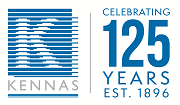
Make the most of tax rules in 2022 – here’s 10 ways to get started
18 May 2022 | Agribusiness
Featured
Health
Kennas Client Resources
Professionals
SME
At the end of the last financial year, most businesses and people enjoyed a ‘free kick’ to help smooth the turbulence we all experienced. This year, you may be looking for other ways of minimising tax. Read on to jog your memory or learn a new tactic to maximise your earnings and profit.
For businesses:
Apply immediate asset write-offs
The good news is that businesses with an aggregated turnover up to $5 billion can claim an immediate deduction for writing off the value of:
- New depreciating assets
- The cost of improvements to existing eligible assets
- Second-hand assets for SMEs
Keep in mind the clock is ticking – new assets must be installed and ready to use by EOFY. And if you’re thinking a new luxury ride is in order, the limit is $60,733 – and you can only deduct the business portion in the year of purchase.
And should you purchase and install an asset that pushes you into an overall loss position, you may be able to apply the loss to prior year’s profits, meaning a refund of tax paid previously. A double-win situation.
More business strategies
- If you’re planning expenditure for early in the new financial year, consider bringing it forward to the current financial year. This is an effective way to reduce your tax liability sooner.
- Late invoicing – consider deferring income until after 30 June if possible, but be sure to manage any cash flow issues this might cause.
- Ensure you write off any bad debts that you can prove are unlikely to be recovered before 30 June.
- Retailers and medical practices! Schedule sufficient time for stock management – use the opportunity to write off any unusable or obsolete stock before 30 June. Identify what has moved well (or not!) and review stock plans for the new financial year.
- Pay your employer super contributions on behalf of your employees well before 30 June to claim deductions this financial year. Note the contributions must be cleared by this date, not just paid
For individuals:
Make the most of working-from-home tax deductions
For individual tax returns, remember that the 80c/hour all-inclusive ‘shortcut’ stands until 30 June this year. This covers all eligible home office expenses (no, your morning cuppa doesn’t make it into that list, sorry!). So ensure you keep good records to back up your claim, or use those records to claim the normal 52c/hour, plus claimable expenses like phone and internet.
Maximise super contributions
Most know about the concessional contributions cap – it’s increased to $27,500 this financial year – but did you know that if you haven’t contributed up to your cap from previous financial years (from 2019), and if your super balance was under $500,000 at the start of this financial year, those amounts are carried forward and can be used in the current tax year. For example, if you made no contributions at all from 2019 to now, and you possibly have the capacity to invest in super, you could contribute up to $102,500.
Check private health insurance rebate levels
Is it worth pre-paying your private health insurance this financial year, for the next year? If you know your rebate level will change in the next 12 months because your income will be higher, paying it forward at your current income-tested level could save a good amount. Check this out online through your health insurance portal, and search on rebate tier eligibility.
Explore applicable concessions and offsets
The ATO makes numerous other concessions and offsets for businesses and individuals – don’t leave it to the last minute to check what applies to you, and the appropriate actions that need to be taken before 30 June.
We’re gearing up to ensure our clients are fully compliant and are enjoying the benefits of our comprehensive tax management services.
Book your tax planning session with our qualified professionals – you’ve got less than 50 days to take action!



